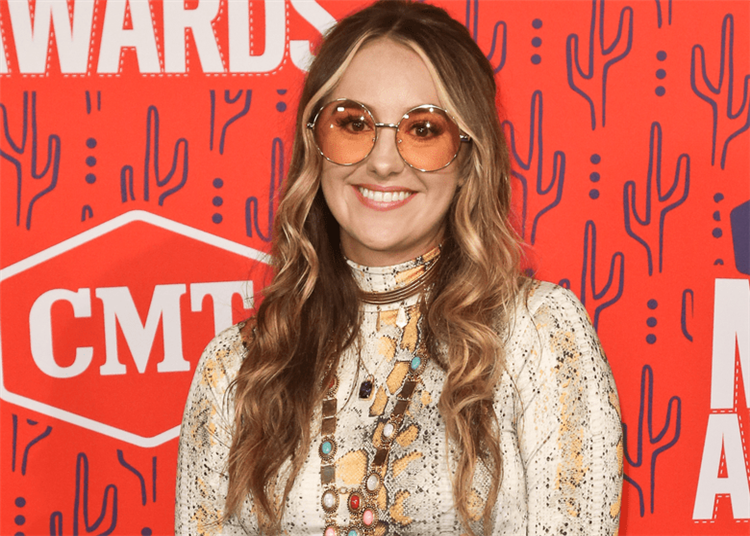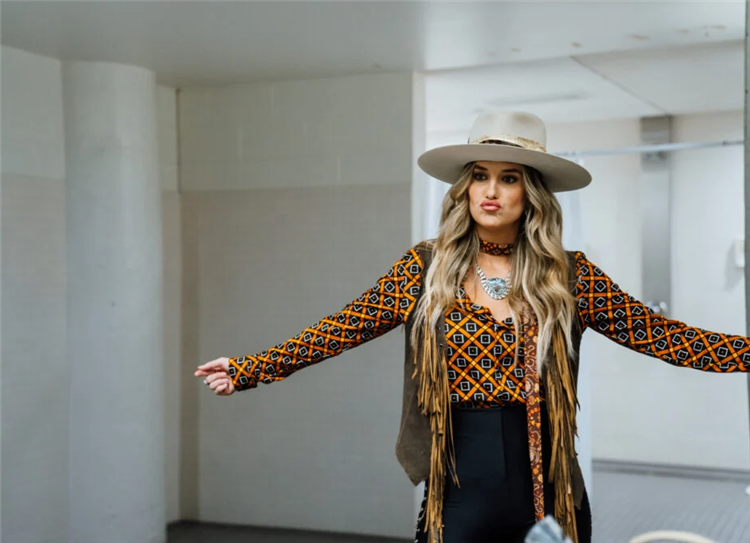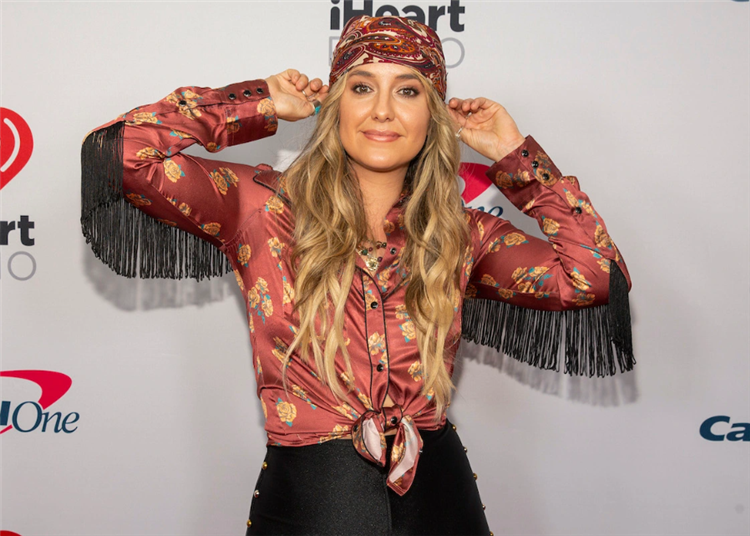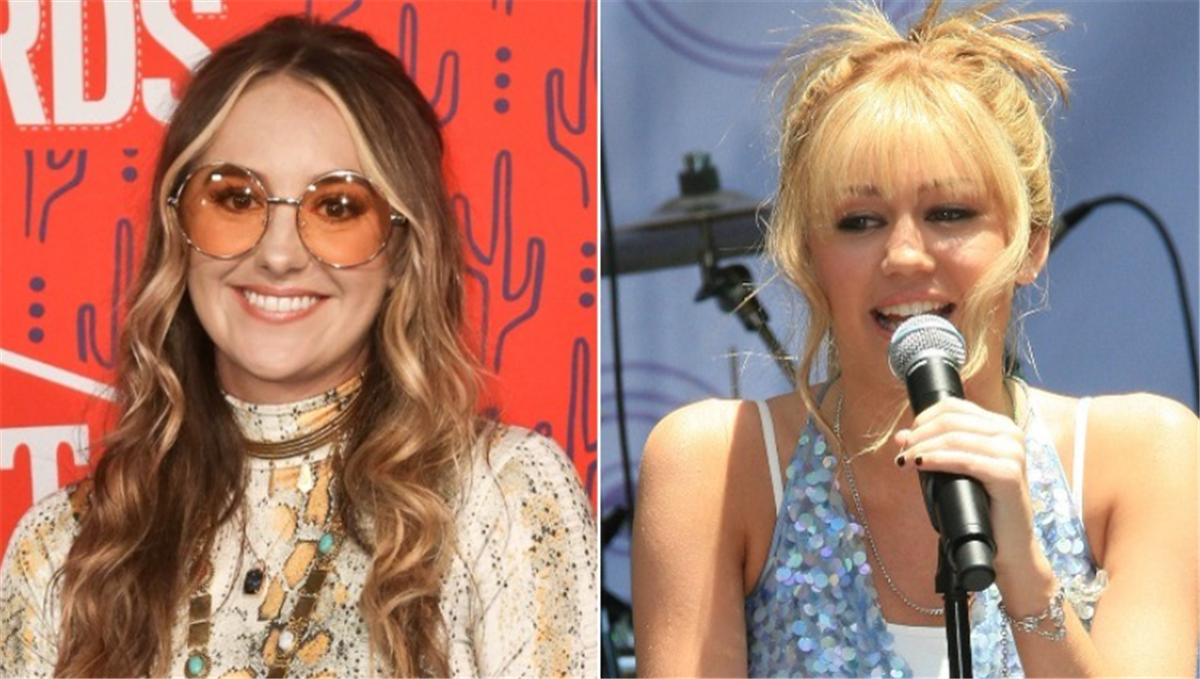During a recent Gold Derby video interview, contributing editor Tony Ruiz spoke in-depth with Lainey Wilson (“Yellowstone”) about Season 5 of her Paramount Network western drama, which is eligible at the 2023 Emmys. Watch the full video above and read the complete interview transcript below.
Wilson is a country music singer-songwriter who was named Female Vocalist of the Year by both the Country Music Association and the Academy of Country Music. In addition, her album “Bell Bottom Country” was the ACM’s Album of the Year. It’s no surprise, then, that she co-wrote the song “Smell Like Smoke” for the number-one show on television, “Yellowstone,” in addition to recurring in the role of Abby.
Acting was “not a priority” for her by any means, Wilson told us in our webchat. That said, she added, “If an opportunity came up where that meant I got to share my music with the world, then I was going to take it. So I dove in headfirst. I mean, I was brand spanking new at this. The closest thing I’d ever done to acting was I impersonated Hannah Montana for five years, middle school through high school.”
Tony Ruiz: I’m Tony Ruiz of Gold Derby here with Lainey Wilson, who made really kind of her acting debut in Yellowstone this season and also has a song, Smell Like Smoke. And Lainey, I just want to start, first of all, country music is kind of such a uniquely American thing and Yellowstone is the number one show on television in America. And I’m just curious, you’re kind of riding this wave of popularity right now with all the success you’ve had. Was acting ever a part of your long range plan?
Lainey Wilson: It was not a priority of mine by any means. I have kind of always made a promise to myself, though, that if an opportunity came up where that meant I got to share my music with the world, then I was going to take it. So I dove in headfirst. I mean, I was brand spanking new at this. The closest thing I’d ever done to acting was I impersonated Hannah Montana for five years, middle school through high school. I did birthday parties and fairs and festivals, but it was a completely different side of my creative brain, I guess you could say.
TR: Is there any kind of connection between filming a music video and doing this, or is it just completely a different animal?
LW: There are a lot of similarities, but I will say there’s some differences too. For me, learning the lines, learning the script was like learning a song that I didn’t write and sometimes that can be hard. I tried not to learn it too much. People had given me pointers, they’re like, “Don’t learn the lines so much that it just seems like you’ve rehearsed it over and over again, because you need it to sound like you’re just having a straight-up conversation with somebody.” So I didn’t stress myself out about that too much. It just kind of came out how it was supposed to come out. But yeah, I’ve learned that I really just love being creative. I love stepping outside of my comfort zone. I feel like if I’m not doing that, whether it’s in the acting world or whether it’s in the music world, then I’m not growing and doing things that are scary can sometimes be fun too.
TR: What was your first kind of encounter with Yellowstone prior to joining the cast?
LW: So my manager, Mandelyn, had pitched a song of mine called, Working Overtime, that was on a self-titled EP of mine before I even had a record deal. I believe this was 2018. And the show picked it up. It was in the second season of the show. It was when the bull was busting into the barn, which was still one of my favorite scenes of all of the seasons. And that’s when Taylor Sheridan and Andrea von Foerster, who is the music supervisor of the show, they became fans. And Taylor ended up inviting me out to Las Vegas to play a horse riding competition that he puts on. And that’s where I got to meet him and hang out and become friends. And we bonded over horses. I mean, I grew up on the back of a horse before I could even walk, and we just had a lot in common and it was kind of like a mutual respect for each other. So, shook his hand, exchanged numbers. He was like, “Keep sending me music. I want to help you any way that I can.” And he ended up putting a few more of my songs in season three. And I noticed that it really did introduce me to a lot of people. People were coming to my shows being like, “I found you through Yellowstone.” And it’s crazy to think that a soundtrack to a show is really that beneficial, but when I’m telling you Yellowstone’s is, it has changed the game for me. And I think Yellowstone in general has changed the game for country music. I think it’s kind of made it cool again, which it should have never not been cool.

TR: Well, it’s also I think made, I’ve spoken with a lot of people, not just on Yellowstone, but on 1883 and 1923, I spoke with Tim and Faith when they were on 1883 and he’s really made the Western kind of popular again on television. It was so big in the fifties and sixties and it’s kind of having a renaissance right now.
LW: You are right. And it’s cool to see. I mean, people are pulling out their cowboy hats, they’re wanting to ride horses. It’s a really cool way of life to be a part of. It’s a way of life that I grew up in. My daddy is a real cowboy, and like I said, I grew up on the back of a horse. But for me, the thing that I love about that Western way of life is really the things that it stands for. I feel like when I learned to ride my first horse, I was holding on for dear life and I have carried those kind of things with me in the music business. When I feel like I’m about to get bucked off and I can’t hold on anymore, I just cinch the reins up and I hold on a little bit tighter. So I always kind of compare what I’m doing to that.
TR: It’s interesting, you perform Smell Like Smoke in the saloon. And I’m curious, in that moment, did you flash back to some of your early days coming up in the music business?
LW: Oh, absolutely. It felt like I was right back to where I started. And the truth is, I feel like I have a lot of those full circle moments. And for me, that kind of just reminds me, all right, well, you’re still the same person. You’re right where you’re supposed to be. Even performing Watermelon Moonshine, that was on a flatbed trailer. And the first time I ever did a Hannah Montana impersonation gig was on a flatbed trailer. So just a lot of full circle moments, for sure.
TR: How is Abby, how is the character of Abby different from you?
LW: She probably messes with cowboys a little too much. I think I’ve learned my lesson there. I have definitely learned my lesson there. I feel like we do have a lot of similarities. And the truth is Taylor did write the character based off of me. I kind of had to make up some of the parts of the character because it was, I just had the script and that was pretty much it. So for me, I had dreamed up that, okay, maybe Abby is a girl who is going through Montana. She finds a crowd of people who were finally starting to latch on and relate to her music, and that’s when she meets Ryan and falls head over heels. But she still is the kind of girl who would not let anything stand in her way. And I’m the same kind of way. I’ve had to kick a lot of them to the curb just to see some things through. But yeah, I think she had some make out scenes on TV. I thought I was going to end up on the prayer list back at home, so she might move a little quicker than I would, but hey, do you, Abby.
TR: Well, and one of the things that I also love about her is, that is exactly what you’re talking about. She is not afraid to say, she has that really great line where she’s like, “Yeah, I wish I was part of the dream.” And she does not hold back in what she says.
LW: She don’t and I don’t either. I think that’s why playing that role was really easy for me because a lot of the lines that he wrote, I felt like I had wrote it. And that’s kind of like cutting an outside song that you didn’t write. I want to feel like if I do cut that song and record that song, I want to feel like I wrote it. And I know not with every acting role that I get is going to be that way, but it was definitely a blessing for me, especially with this being my first rodeo.
TR: And I think it ties so great to the song too, because the song is really about the things that we’ve done to get where we are, some good, some bad, and embracing that. And that’s as equal a part of us.
LW: You’re right? When we wrote the song, we were definitely in that Yellowstone mindset. We were writing specifically for the show and we were talking about the heartbreak and the cowboys and the self-assurance and faith. I think those are the four pillars that I feel like Yellowstone is based off of. And the truth is that’s what my life is based on too. So I have a lot of similarities with the show. I feel like when I’m watching the show a lot of the time, because I’m a big old fan of it and was before I was even a small part of it, it reminds me a lot of my family. They stand up for what they believe in, they fight for what they want. And it’s really cool that I’m getting to be a part of such a huge wave of something that I don’t know the next time this will happen.
TR: Well, one of the things that I’ve always admired about you is that in many interviews I’ve seen with you, you call yourself a songwriter first. And I feel like that is something that’s really come kind of full circle in the last few years of more and more artists really taking control of their music and taking control of their songs and spilling out their guts in their songwriting. Was that always important to you from the very beginning?

LW: It always was. I wrote my first song at nine years old. I wasn’t always writing things that were true to me. I mean, I was 11 years old, writing songs about tequila and cigarettes, but I knew that I was a songwriter. I knew that I was a storyteller. I’m from a town of a couple hundred people and there’s not a whole lot to do in Baskin, Louisiana. I mean, it’s the kind of town where you call up your friends and you call up your family and you sit around the kitchen table and you tell stories and you talk about the same old stories for years. But it seems like every time you hear them, you hear them from a different angle or you laugh at something that you didn’t laugh at before. You cry about something that you didn’t cry about before. And to me, I think that’s what I wanted to do. I wanted to make people laugh and cry or drink a beer, all of the above. I wanted to make people feel something.
TR: And as the singing developed, how did your voice develop? When did you know that you had a really kind of distinctive voice, because your voice is so uniquely you.
LW: I appreciate that. I feel like I started finding that out when I started playing guitar. Even at 11 years old. I mean, the first time I sang out in public was my kindergarten graduation. This has truly been a thing for me that chose me. I felt like I had no other option. I felt like, all right, this was a gift that was given to you and it is up to you to use it. And I knew that at a very early age. I knew that at nine years old when I wrote my first song, but especially when I picked up that guitar and my daddy showed me a few chords and it just kind of opened up the sky for me. It opened up this completely different world. It gave me an opportunity to take my voices to different places that I didn’t know existed. When I was just writing songs acapella, I had a hard time finding different ways to use my voice. And so I think that’s when it changed for me.
TR: Country music is so famous for people paying their dues, and oftentimes sometimes it takes years and sometimes even a decade to break in. And so what sustained you during those times?
LW: I think I might be borderline psycho. I’ll be honest. Looking back on it, and this is just me being completely honest, if I had known that it was going to be this hard, I don’t know if I would’ve done it. And so that naive part of my heart and my head is what kept me going. That faith, that weird sense of peace that I had, even when my parents drove me through Nashville when I was nine years old, a couple weeks after I wrote my first song, I had a weird sense of peace about knowing that no matter how long it took me, that I was going to find my place within the industry. I didn’t know exactly what it was going to look like. I knew what I wanted it to look like. And the truth is, now it looks even better than I thought it was going to. So it’s been 12 years in Nashville, but I turned 31 this year and like I said, wrote my first song at nine years old. So I’ve been working at this my entire life, and I’ve dedicated my life to country music, but it truly is a way of life for me.
TR: It’s been such a great two years for you with the CMAs and Female Vocalist of the Year and winning Song of the Year at ACMs and Album of the Year this year. And it’s also, at the same time, I think it’s been this kind of resurgence of powerful women in country music to a degree that we haven’t had in such a long time with Ashley and Carly and all those folks. What’s this last couple of years been like for you?

LW: It has been a whirlwind. I’m trying to hold on for dear life. I’m getting a few days at home a year right now, and it’s crazy that you actually caught me at the house today. I get to stay the night in my own bed tonight, which is, I don’t take those nights for granted at all. It feels really cool to be a part of what’s happening right now. Because I do feel it, just like you said, there’s something in the air. And I think it truly goes back to that storytelling. It reminds me of nineties country music right now. I mean, nothing will ever be the nineties ever again. You got to move, you’ve got to grow, and change. But no matter what, the root of country music is always going to be that. And I definitely feel like we’re tilting back that direction, which is, it’s just, it’s fun.
TR: I wonder just from a songwriting, because I’m an English teacher in my normal life, I always like to ask about the writing process, and I’m curious where your writing process starts.
LW: For me, it always starts with an idea. The best idea in the room wins. If I’m writing with two other people, we kind of throw all of our ideas into a pile, and if it’s something that I feel connected to, we kind of map it out. We kind of talk about, okay, what is the overall idea? We get the idea for the hook, the chorus, and then we kind of figure out how we want to tell the stories and the verses. And the cool thing about co-writing for me is, I mean, you put three people in a room, you’re going to get three different perspectives on things. And that just means that when people were hearing this song, there’s going to be certain lines that people feel like, man, that was written for me. If I had just written the song by myself, maybe there wouldn’t be so many different avenues where people could relate to it like that. I still think it is important to write music by yourself at times, and I still try to do that on the road and whenever I get a chance. And songwriting is my first true love. It’s what has saved my life over and over again. Even when I think about the pandemic, I mean, I wrote 300 plus songs during that time. It is truly what kept me going. And too, it keeps it interesting. I mean, it doesn’t always have to start with an idea. Somebody could come in the room and have a melody or they could be like, “I want to write about this specifically.” But for me, it is a therapeutic thing because I get to put myself into the shoes of whatever it is that we’re writing about. So if we wanted to write about that tree right there, I could feel everything that that tree is feeling. And it gives me an opportunity to step out of my own self and step out of my own head and my own heart. And it’s a big blessing in my life.
TR: Well, Lainey, congratulations on everything. The show, the song, the Bell Bottom Country, which is such a fantastic album. And if you don’t have it, go buy it. Everybody, go to goldderby.com, make your predictions for the Emmys, and stay tuned for more interviews with contenders throughout Emmy season. Lainey Wilson, a real pleasure. Thank you.
LW: Thank you so much, my friend.
Make your predictions at Gold Derby now. Download our free and easy app for Apple/iPhone devices or Android (Google Play) to compete against legions of other fans plus our experts and editors for best prediction accuracy scores. See our latest prediction champs. Can you top our esteemed leaderboards next? Always remember to keep your predictions updated because they impact our latest racetrack odds, which terrify Hollywood chiefs and stars. Don’t miss the fun. Speak up and share your huffy opinions in our famous forums where 5,000 showbiz leaders lurk every day to track latest awards buzz. Everybody wants to know: What do you think? Who do you predict and why?
